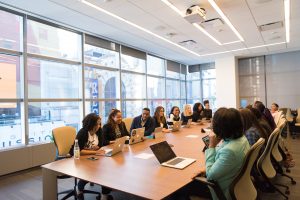
Changing Tides in Workplace Priorities
Written by Charles Nelson - February 7, 2022
Last year, 2021, was without a doubt an unprecedented year. Despite lockdowns, cutbacks, and a 2020s recession, architecture firms surpassed payroll levels from the years before the pandemic. This meant more staff were being hired because there was more work, and there was more work because there was more money available to spend on building construction and renovations. Furthermore, 80% of firms in 2021 demonstrated a healthy revenue and growth averaging an increase of 5%.
However, most remarkably, 2021 highlighted a shift in employee preferences in terms of their workplace. Previously, it was expected that workers preferred firms that offered them the largest salary package. Obvious exceptions to this rule are architects looking to gain experience from specific projects. This, therefore, is an indication that there are sometimes circumstances in which non-monetary compensations are more valuable.
Chief Economist, Kevin Baker of The American Institute of Architects, posed the following question to staff across small industries and businesses, such as architecture, “What do you think will be the most important issue for staff satisfaction in the coming years?”
Surprisingly, compensation did not rank first on the list. What did, was firm culture and workplace comfort. Based on these survey results, Baker believes that non-monetary compensation has become more valuable to employees due to the events over the last two years during the pandemic.
In a sector of small businesses such as architecture, the easiest way to fill positions is to entice them away from your competitor’s firm. However, this strategy is unlikely to be as effective now. It’s not all about how much they can get paid, necessarily, but more about how well the firm’s values align with their own.
Survey results also showed that the sixth most-cited issue relating to predicted worker satisfaction in coming years will be the ‘social, economic and environmental impact’ of the work they do. Only a decade ago, this issue was considered far less important. This might suggest that if people feel good about the work they are doing, then their hard work could also lead to greater job satisfaction.
References
Richards, W. (2021, November). Firm culture to outrank salary in staff satisfaction. The American Institute of Architects. Retrieved February 1, 2022, from https://www.aia.org/articles/6468283-firm-culture-to-outrank-salary-in-staff-sa

